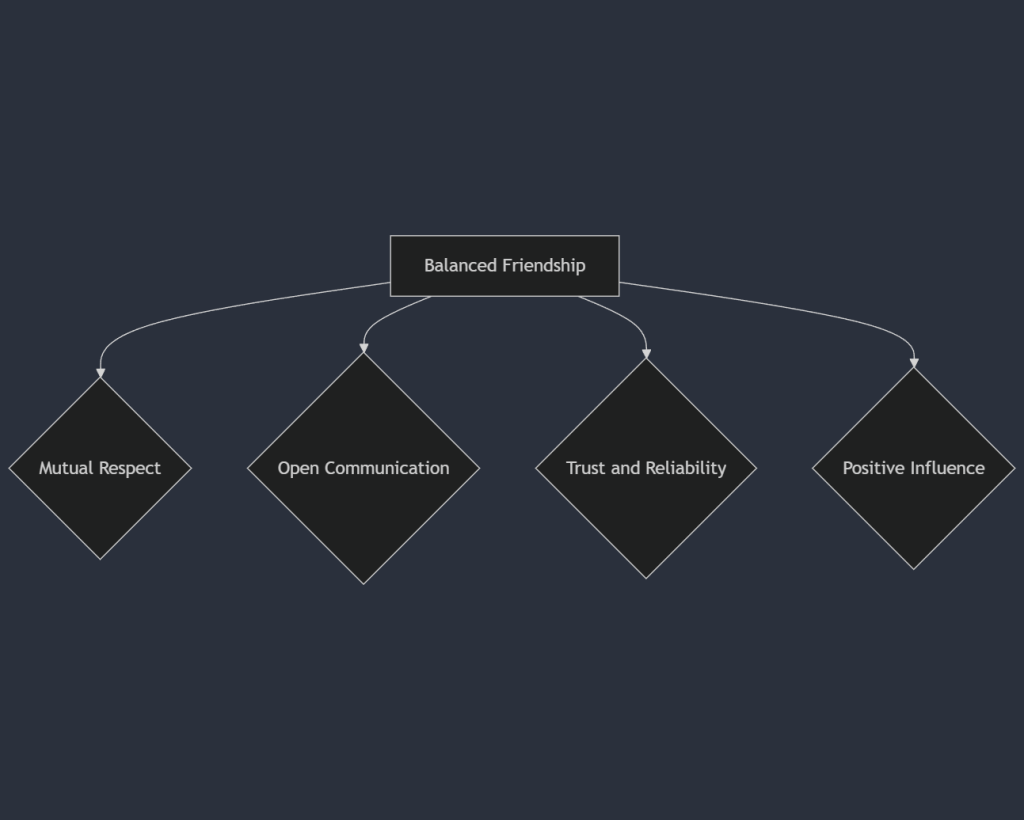
Frendships are not always forever
Friendships can be powerful sources of support, joy, and personal growth. However, some friendships may become toxic, affecting your emotional health and self-esteem. Recognizing signs of an unhealthy friendship can help you make choices that protect your well-being. Here are 14 signs to watch for, along with simple strategies to manage or end these negative relationships.
1. Frequent Negativity
If a friend constantly complains or brings negativity into your life, this could indicate an unhealthy dynamic. When interactions leave you feeling drained, it may be because of the excessive focus on their problems without balance.
2. One-Sided Communication
Healthy communication flows both ways. If your friend dominates conversations or demands attention but doesn’t listen or reciprocate, this is a sign of a one-sided friendship. Each person’s voice should matter equally.
3. Jealousy and Competition
Friends should celebrate each other’s achievements. If your friend feels jealous, competitive, or tries to outdo you constantly, it can create resentment and unease.
4. Ignoring Boundaries
Boundaries protect your personal space and peace. If a friend repeatedly crosses your boundaries—invading your time, asking intrusive questions, or disregarding your comfort levels—it shows a lack of respect for your needs.
5. Feeling Drained After Every Interaction
A good friendship should leave you feeling uplifted. If you often feel emotionally exhausted after spending time together, this could indicate an unhealthy balance where the friendship takes more than it gives.
6. Manipulation and Guilt-Tripping
Healthy friends communicate openly rather than using guilt or manipulation to get their way. If a friend makes you feel guilty for setting boundaries or tries to control your decisions, this is a toxic behavior that undermines trust.
7. Unreliability
Trustworthy friends follow through on promises and show up when they say they will. If your friend frequently cancels plans, forgets commitments, or proves unreliable, it can leave you feeling disappointed and undervalued.
8. Excessive Criticism and Judgment
Constructive feedback is healthy, but constant criticism damages self-esteem. If your friend regularly points out your flaws or belittles your choices, it could be a sign of an underlying issue with their self-image, not yours.
9. Refusing to Celebrate Your Successes
True friends celebrate each other’s wins. If a friend downplays or dismisses your accomplishments, it may reflect jealousy or resentment. This can make you feel guilty for succeeding, which is a harmful pattern.
10. Only Reaching Out When They Need Something
If your friend only contacts you when they need support or a favor, this is a red flag. Healthy friendships involve mutual support, where each person feels valued beyond what they can provide.
11. Encouraging Harmful Behavior
Friends influence each other’s habits. If your friend encourages behaviors that harm your well-being, such as skipping responsibilities or taking unnecessary risks, this can foster a cycle of negativity that harms both of you.
12. Avoiding Accountability
Conflict is natural, but accountability is key to growth. If a friend refuses to accept responsibility or avoids apologizing, it could signal a lack of self-awareness and respect for your feelings.
13. Isolating You from Other Relationships
Healthy friends support your other relationships. If a friend acts jealous of your other connections or tries to limit your social circle, this is a possessive behavior that can lead to social isolation.
14. Undermining Your Self-Worth
Friends should uplift each other. If a friend makes you doubt your worth or constantly challenges your opinions, it can damage your self-esteem. A good friend validates and respects your feelings, choices, and accomplishments.
How to Address an Unhealthy Friendship
Once you recognize these signs, it’s important to take action. Here are some steps to help you set boundaries and protect your well-being:
- Evaluate the Relationship
Reflect on what this friendship brings to your life. Be honest about how it affects your happiness and personal growth. - Communicate Your Concerns
Use “I” statements to share how specific behaviors make you feel. Avoid blaming, and instead focus on finding solutions that prioritize your well-being. - Set and Uphold Boundaries
Be clear about your limits and be consistent. If a friend ignores your boundaries, it’s a strong signal that they may not respect your needs. - Consider Reducing Contact
Sometimes taking a step back is necessary. Distance can provide clarity and protect your mental health. - Build Positive Connections
Surround yourself with people who respect, support, and celebrate you. A strong, positive social circle fosters resilience and a healthy self-image.
Diagram: Balancing Healthy and Unhealthy Friendship Dynamics


Understanding and addressing toxic friendship patterns can improve your emotional well-being and help you build a life filled with supportive, uplifting relationships. Prioritizing connections that honor your needs, happiness, and growth is essential to a balanced, fulfilling life.